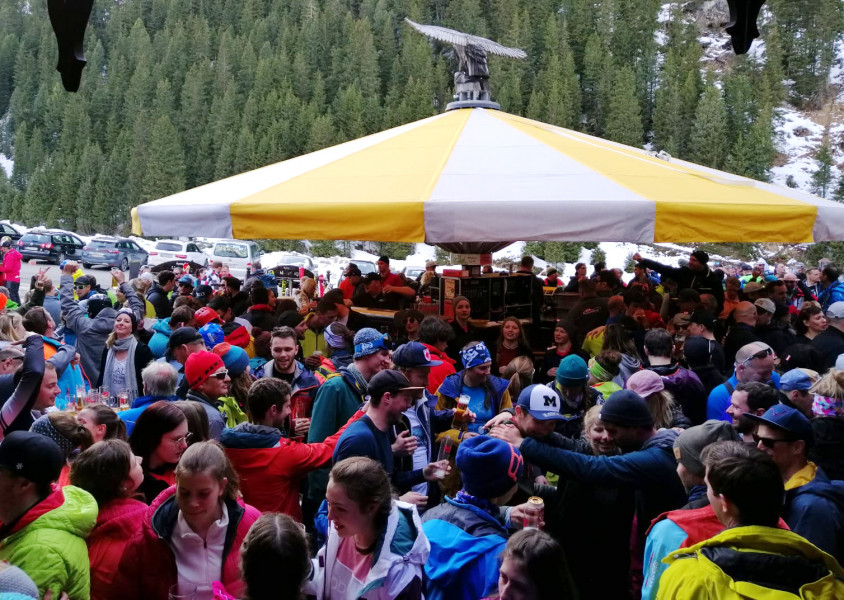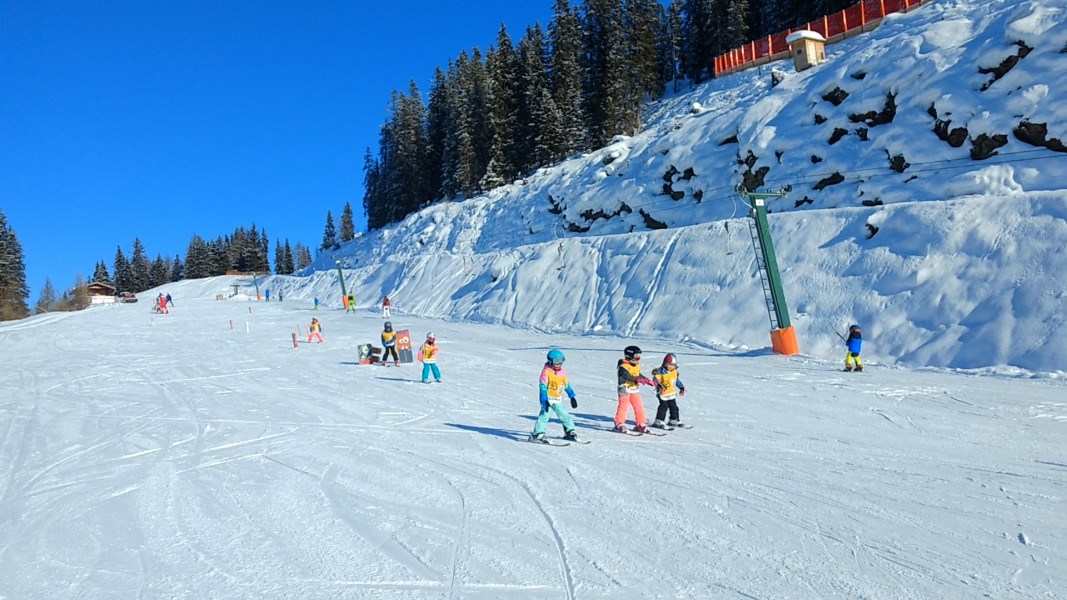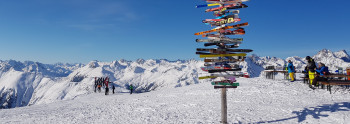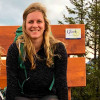After many skiing areas have already developed corona measures for the next winter, there are now concrete guidelines from the Austrian government. At a press conference on Thursday, Federal Chancellor Kurz, Tourism Minister Köstinger and Health Minister Anschober presented the plans for safe winter tourism in Austria. One of the most decisive measures to minimize risks is the restriction of après-ski operations. Après-ski in its usual form will therefore be prohibited next winter.
"Skiing pleasure yes, but without après-ski"

After the summer tourism in Austria has worked well, the goal is now to make winter tourism safe. "Skiing pleasure yes, but without après-ski", Federal Chancellor Sebastian Kurz made clear before the ministers presented the concrete measures.
Winter sports are well compatible with protection against the pandemic, said Health Minister Rudolf Anschober after a risk analysis. The infections in spring did not occur on the ski slopes, but in the après-ski area. However, après-ski only accounts for 3 percent of the added value in winter tourism in Tyrol, according to provincial governor Günther Platter. This small area should not endanger the whole industry. That is why après-ski as it was practiced in the past will no longer exist
Drinks only while sitting
In all restaurants and cabins this winter, there is a rule that both drinks and food may only be consumed sitting down, whether indoors or outdoors. This means that there should no longer be any crowded standing or dancing. Ski resorts such as Ischgl, SkiWelt or Sölden have already declared in advance that they also do not want loud party music but only background music in the restaurants.
Rules for lift operation and ski schools
In addition to the après-ski area, cable car operation is also an important point in the government's concept. In this context, the Minister of Tourism pointed out that about 85 percent of the cable cars and installations in Austrian ski resorts are outdoors without cabins, which considerably reduces the risk of infection. Nevertheless, rules also apply to the mountain railways. As in public transport, a filtering face piece (FFP mask) must be worn in the cable cars. In addition, a minimum distance of one metre must be maintained when queuing. Compliance with the rules should also be monitored more closely. There are no plans to limit the capacity of the cable cars.
Smaller groups in ski schools
For ski schools the group size is limited to a maximum of 10 people. In addition, a mixing of the groups should be avoided. The guidelines are in line with the already formulated measures of the Austrian Ski School Association. The preventive test program for tourism is also to be expanded, explained Minister Köstlinger. The corona tests are to be made available not only to employees in the catering and hotel industry, but also to ski instructors and tourist and travel guides.
Implementation in the ski areas
Minister of Health Anschober welcomed the initiative of the large ski resorts, which have already developed comprehensive safety concepts on their own initiative and which also already include all the points demanded by the government. We have already presented the Covid-19 measures for Ischgl to you.
"Travel advisories are a danger to tourism"
In addition to adhering to the safety concepts in the ski resorts, the Austrian government now urgently needs to avoid further travel advisories, or to repeal existing warnings. That is why the rules were already tightened last week. For example, curfew hours in Vorarlberg, Tyrol and Salzburg were brought forward from 1 a.m. to 10 p.m. Minister of Health Anschober expressed confidence that the measures introduced will show their effect and that a reduction in the number of infections can be achieved.
While it is more difficult to relinquish the status of a risk area in the capital Vienna, where the 7-day incidence is currently over 100, Kurz believes it is perfectly feasible in Vorarlberg to get below the threshold of 50 again in the foreseeable future.
However, Kurz pointed out that it is not only important to reduce the number of infections for health reasons. Tourism is responsible for 15% of the GDP in Austria. Hundreds of thousands of jobs depend on this industry. In order not to endanger them, the figures must be kept low. "Travel advisories are a danger to tourism", said Kurz.
Get the latest Powder Alerts
Schneeticker



